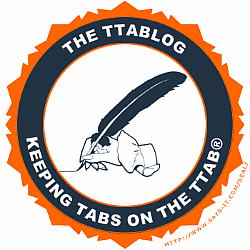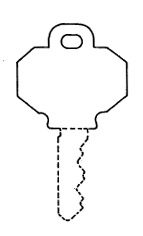The Top Ten TTAB Decisions of 2006® [Part 1 of 2]
The TTAB issued something in the neighborhood of 500 final decisions in 2006, 57 of which were deemed citable [i.e., precedential]. Once again yours truly has dared to chose the ten decisions that arguably are the year's most important and/or interesting. This year's list includes eight precedential decisions, one not precedential, and one "decision" in the form of a PTO sanction ruling. The order of appearance does not necessarily reflect the relative importance of each decision. [This posting is in two parts, the first five decisions being listed below].

Please note the recent TTAB Notice regarding citation of its decisions, both precedential and nonprecedential. (See TTABlog comment here). The decisions below labeled as "precedential" were marked "citable" by the TTAB when they were issued. The non-citable decision, under the new Board policy, may be cited for whatever value it may have, but it is not binding precedent.
In re Organon N.V., 79 USPQ2d 1639 (TTAB 2006) [precedential]. In this case of first impression, the Board affirmed the PTO’s refusal to register "an orange flavor" as a trademark for "pharmaceuticals for human use, namely, antidepressants in quick-dissolving tablets and pills," finding the alleged mark to be de jure functional and incapable of functioning as a trademark for the goods. The Examining Attorney contended that the flavor orange "is a standard feature of orally administered pharmaceutical products and simply would not be perceived as an indicator of source." Moreover, she argued, "orange is a preferred flavor" and “gives an orally administered pharmaceutical product a substantial competitive advantage.” The Board applied the CCPA's four-factor Morton-Norwich test and found the second factor to be "particularly significant": Organon's touting of the utilitarian benefits of the orange flavor. The Board was unable to find "that there are true alternatives, or a least a significant number of acceptable alternatives." It also concluded that "consumers would not view the orange flavor of an antidepressant tablet or pill as a trademark; rather, they would consider it only as just another feature of the medication, making it palatable." (TTABlogged here).
Standard Knitting, Ltd. v. Toyota Jidosha Kabushiki Kaisha, 77 USPQ2d 1917 (TTAB 2006) [precedential]. In its first citable fraud decision in three years, the Board cancelled three registrations relied on by Opposer Standard Knitting, finding that false statements made to the PTO regarding use of Opposer's marks on certain clothing items constituted fraud. The registrations listed various men’s, ladies' and children's clothing items, but discovery revealed that, when Opposer filed its two underlying use-based applications and when it filed its Statement of Use in the third application, it had not used the marks on "at a minimum, most, if not all, of the items of children’s clothing identified in each of the three registrations." Under applicable precedent, that clearly constituted fraud. Standard claimed that the false statements were the result of honest mistake and misunderstanding rather than fraudulent intent, but the Board ruled that Standard's claim of innocence was not credible. The Board nonetheless considered Standard's likelihood of confusion claims based on its common law rights, but, in view of the vast differences between the goods of the parties (clothing versus automobiles), ruled in favor of Toyota. (TTABlogged here).
In re The Black & Decker Corp., 81 USPQ2d 1841 (TTAB 2006) [precedential]. Rarely does an applicant for a product configuration mark clear the distinctiveness hurdle, but Black & Decker managed to convince the Board to reverse the PTO's refusal to register the configuration of a key head as a trademark for metal door hardware and key blanks. The sole issue before the Board was whether the configuration has acquired distinctiveness.

B&D established acquired distinctiveness, despite the lack of "look for" advertising evidence, by proving more that $20 million in advertising expenditures and more that $500 million in revenues during the 2000-2004 period. Its marketing manager averred that the Baldwin Key Head Design is an arbitrary design, that "it is an industry practice to use different and identifiable key head designs for locksets and keys," that the design has been featured in promotions (including sales person lapel pins), and that since 2001 Baldwin has used an octagonal logo for all its advertising and promotional materials. In addition, Applicant submitted ten form customer declarations attesting to the distinctiveness of the design, five third-party registrations for marks consisting of other key head designs for door hardware, and photos of ten key heads from other manufacturers of locksets. The Board acknowledged that it has, at times, been critical of an applicant's 2(f) claim when "look for" evidence was not provided. Here, however, the Board found the evidence regarding industry practice to be particularly significant. (TTABlogged here).
In re King Koil Licensing Co., 79 USPQ2d 1048 (TTAB 2006) [precedential]. In affirming a Section 2(e)(1) mere descriptiveness refusal of THE BREATHABLE MATTRESS (MATTRESS disclaimed) for beds and mattresses, the Board gave some (albeit limited) probative weight to the PTO's evidence from foreign websites, even though the websites did not deal with scientific or technical subject matter. Citing In re Remacle, 66 USPQ2d 1222 (TTAB 2002) (which concerned sophisticated medical technology), the Board observed that "under appropriate circumstances, web pages posted abroad may be considered probative evidence on how a term will be perceived." "[C]onsumers may visit foreign web sites for informational purposes, even if they are more likely to focus on internet retailers that can easily ship items or make items available for pick up in a store in a location convenient to the purchaser. That would appear especially likely in a case such as this, where the item in question, a mattress, is large and potentially more expensive to ship than a smaller item." (For a discussion of foreign website evidence, see Welch and Lamport Hammitte, "The TTAB and Foreign Website Evidence: Quo Vadis?," 20 Allen’s Trademark Digest 7 (December 2006)). (TTABlogged here).
Maids to Order of Ohio, Inc. v. Maid-to-Order, Inc., 78 USPQ2d 1899 (TTAB 2006) [precedential]. This decision reminds us that not every false statement made by an applicant is fraudulent. Petitioner contended that Respondent had committed fraud on the PTO by falsely claiming use of its mark MAID TO ORDER in interstate commerce. But the Board concluded that Petitioner failed to meet its "heavy burden" to prove fraud: "It was not unreasonable for Ms. Kern [Respondent's president], as a layperson, to believe that [Respondent's] activities constituted use of the MAID TO ORDER mark in interstate commerce. *** This belief is sufficient to negate an inference of fraud upon the USPTO in obtaining and maintaining the registration." The question at hand -- whether the mark had been used in interstate commerce, or only intrastate, was a mixed question of law and fact, one much different from the black-and-white question of whether the mark has been used at all in connection with a particular product. (TTABlogged here).
[Part 2 of this two-part posting will appear tomorrow.]
"The Top Ten TTAB Decisions of 20**" is a Registered Trademark of John L. Welch. Text Copyright John L. Welch 2007.




0 Comments:
Post a Comment
<< Home